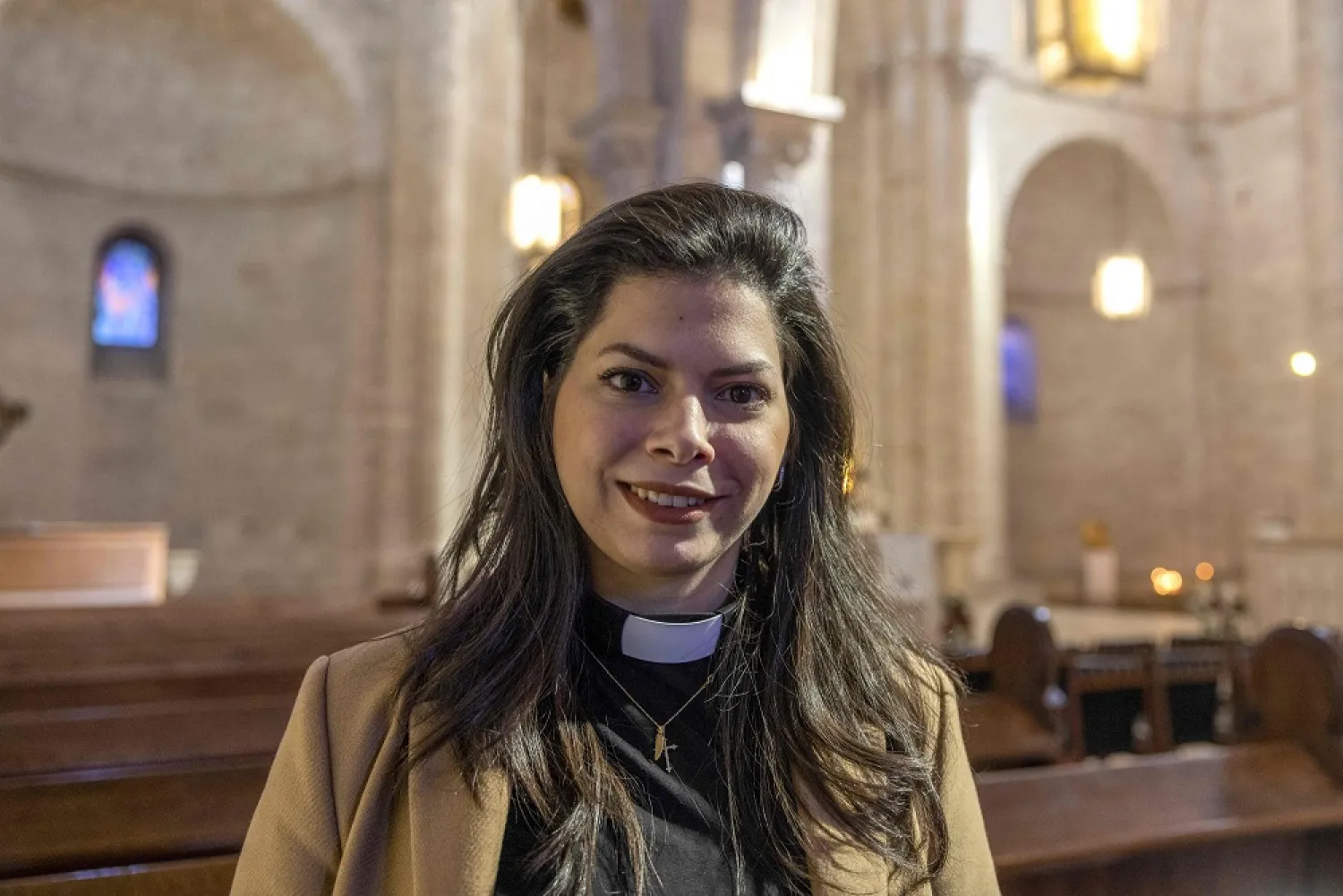Trailblazer Sally Azar is hoping that her role as the Holy Land's first Palestinian woman pastor will inspire other women to reach for influential positions in religious and political life.
Wearing her clerical collar and with clasped hands before an altar at the Lutheran Church of the Redeemer in the heart of Jerusalem's Old City, Azar recounted the "indescribable moment" she was ordained.
"It was a special moment and I really appreciated the support, the big support that was there from all around the world," said the 26-year-old.
Her landmark ordination in January happened just a stone's throw from the most sacred site in Christianity, the Church of the Holy Sepulcher.
Azar said she has spent years "preparing for that day" and took inspiration from biblical women who wanted "to change something in the society".
Her Lutheran Church is part of the Protestant movement which permits women pastors -- unlike the Catholic or Orthodox branches of Christianity.
"I also don't want to be the only, the first and the last woman ordained," said Azar, who grew up in Jerusalem and studied at a German school for Christian and Muslim girls.
"This is my hope -- that more women would study theology and be ordained as well," she said.
There are just 3,000 Lutheran worshippers across the Holy Land and neighboring Jordan, Azar said.
She warned that Jerusalem's Christian community was "getting smaller by number every day".
"A lot of people are leaving due to the political situation, and a lot of our young people are studying abroad and not coming back," she said.
The Old City lies in Israeli-annexed east Jerusalem, where church leaders said in 2021 that Christians were "the target of frequent and sustained attacks by fringe radical groups".
Azar defied expectations and returned home after studying in Germany, where there is a sizable Lutheran congregation, citing "the love I have for my country" and community.
Despite facing some opposition to her ordination, the pastor pledged to use her work to show "why it's important".
Well beyond the stone walls of the church, Azar said she aimed to inspire women globally to seek positions of high office, such as within political parties or in government.
"Whatever leading role there is in a society, I hope this will be an encouragement to do it," she said.









